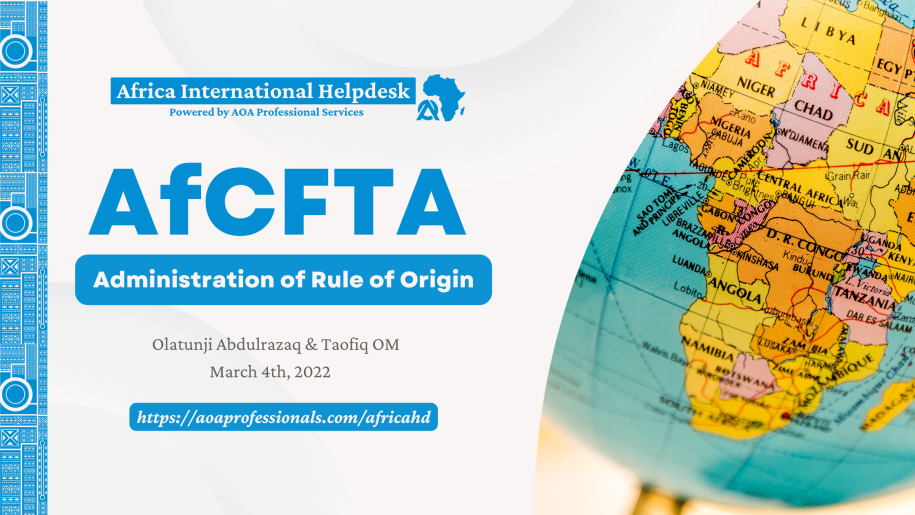Rules of origin are the basis required to ascertain the home source of a product. Their importance is derived from the fact that duties and limitations in several cases depend upon the source of imports.
With the African Continental Free Trade Area (AfCFTA) bringing together 1.3 billion people in 55 African countries to create the world’s largest free trade area as measured by the number of participating Member States, the Economic Development in Africa Report 2019 notes that the rules of origin could be a revolutionary for Africa as long as they are simple, transparent, business-friendly and predictable.
In essence, rules of origin will enable goods to move duty-free within a free trade area (FTA) as long as these goods qualify as originating within the FTA.
It is required to set up a committee on rules of origin under the AfCFTA agreement to annually review the implementation of the rules, and their provisions and submit reports and recommendations to a committee of senior trade officials.
Rules of origin are the foundations for the successful implementation of preferential trade liberalization, the critical policy tool needed to make any Free Trade Area (FTA) functional and are of necessary importance in creating opportunities for African Least Developed Countries (LDCs) to boost trade.
UNCTAD recommends that rules of origin should be kept simple, transparent, business-friendly, predictable and not costly or complex to comply with as companies may instead forego these preferences and choose to trade with partners outside the AfCFTA.
“The AfCFTA is a landmark achievement in the continent’s history of regional integration and is expected to generate significant gains. But it is the rules of origin that will determine whether preferential trade liberalization under the AfCFTA can be a game-changer for Africa’s industrialization”.
UNCTAD Secretary-General Mukhisa Kituyi
President Muhammadu Buhari has assured the Manufacturers Association of Nigeria (MAN) that the federal government will take relevant measures to enhance access to foreign exchange for the importation of raw materials and machines that are not available locally. The President also said that Nigeria would expedite the process of setting up the Designated Competent Authority that will superintend the administration of Rules of Origin and Commission as well as the automation for issuance of electronic Certificate of Origin.
Rules of origin are used:
- to apply measures and instruments of commercial policy such as anti-dumping duties and protective measures;
- to decide if imported products shall receive most-favoured-nation (MFN) treatment or preferential treatment;
- for trade statistics;
- for the use of labelling and marking requirements; and
- for government procurement.
DISCLAIMER:
The material contained in this publication is provided for general information purposes only and does not contain a comprehensive analysis of each item described. Before taking (or not taking) any action, readers should seek professional advice specific to their situation. No liability is accepted for acts or omissions taken in reliance upon the contents of this alert.
AOA Professional Services is an indigenous tax, regulatory and advisory service firm driven by the values of professionalism and partnership. For further information on the subject matter, reach out to our Africa International Helpdesk

